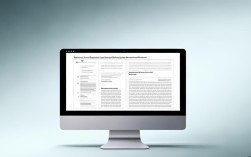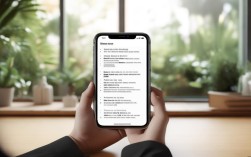Commuting in IELTS Speaking
Commuting is a common topic in IELTS Speaking, especially in Part 1 and Part 2. It often appears in questions about daily routines, transportation habits, and personal experiences. Understanding how to discuss this topic effectively can help candidates demonstrate their fluency, vocabulary, and ability to structure answers clearly.

Why Commuting is a Popular IELTS Topic
Examiners use commuting-related questions to assess a candidate’s ability to describe routines, express opinions, and compare different modes of transport. For example:
- How do you usually commute to work or school?
- What are the advantages and disadvantages of public transport?
- Describe a time when your commute was particularly difficult.
These questions test both practical language skills and the ability to elaborate on personal experiences.
Key Vocabulary for Discussing Commuting
Using varied and topic-specific vocabulary can significantly boost your score. Here are some useful terms:
| Category | Examples |
|---|---|
| Modes of Transport | subway, bus, train, ferry, bicycle, carpool, ride-sharing, e-scooter |
| Adjectives | convenient, time-consuming, crowded, expensive, reliable, punctual |
| Verbs | commute, travel, transfer, delay, overtake, park, navigate |
| Collocations | rush hour, peak times, traffic jam, season ticket, carbon footprint |
For instance, instead of saying, "I take the bus," you could say, "I rely on the bus for my daily commute, especially during off-peak hours to avoid the crowds."
Structuring Your Answers
A well-structured answer will impress examiners. Follow this simple framework:
- Direct Answer: State your main point clearly.
- "I typically commute by subway because it’s the fastest option in my city."
- Elaborate: Add details or reasons.
- "The subway system is extensive, so I can reach my workplace in under 30 minutes without dealing with traffic."
- Example or Experience: Share a personal anecdote.
- "Last week, however, there was a strike, and I had to take a bus, which doubled my travel time."
- Opinion or Comparison: Contrast with other options.
- "While driving might offer more comfort, the cost and parking issues make it impractical for me."
Common Commuting Scenarios in IELTS
Here are some typical questions and sample answers:
Question: Do you prefer public transport or driving?
Answer: "I prefer public transport for daily commutes. It’s not only cost-effective but also environmentally friendly. Driving, on the other hand, can be stressful due to traffic congestion and parking fees. However, I do enjoy driving for long trips on weekends."
Question: Has your commuting method changed over time?
Answer: "Yes, definitely. During my university years, I used to cycle everywhere since the campus was nearby. Now, I work farther from home, so I’ve switched to using the subway. It’s a more practical choice for the longer distance."
Tips for Success
- Be Honest: Share real experiences to sound natural.
- Use Linking Words: Words like however, moreover, and as a result improve coherence.
- Avoid Repetition: Synonyms (e.g., journey, trip, commute) keep your language fresh.
FAQs
How can I expand my answer if I don’t have much to say about commuting?
If you struggle to elaborate, try adding:
- Future Plans: "In the future, I might start working remotely to reduce my commute."
- Hypotheticals: "If there were better cycling lanes in my city, I’d probably cycle more often."
- Comparisons: "Compared to my parents’ generation, young people today rely more on ride-sharing apps."
What if I have no experience with certain transport types?
It’s acceptable to admit lack of experience while demonstrating language skills:
"I’ve never tried commuting by ferry, but I imagine it must be a relaxing way to travel, especially with scenic views. However, I’ve heard it can be unreliable during bad weather." This shows flexibility and creativity without lying.











